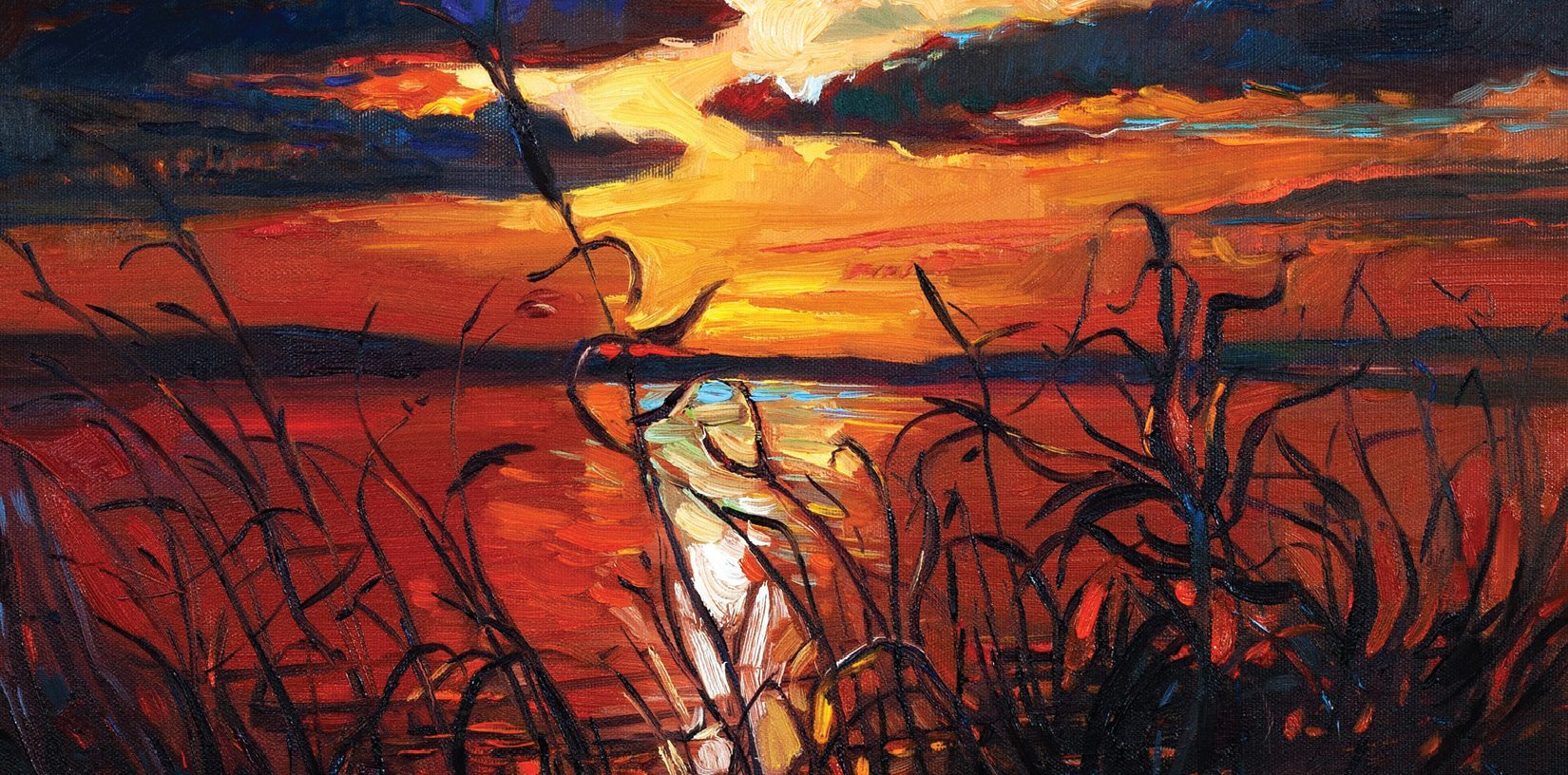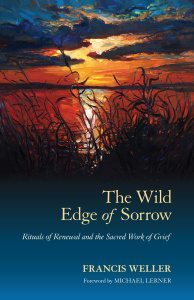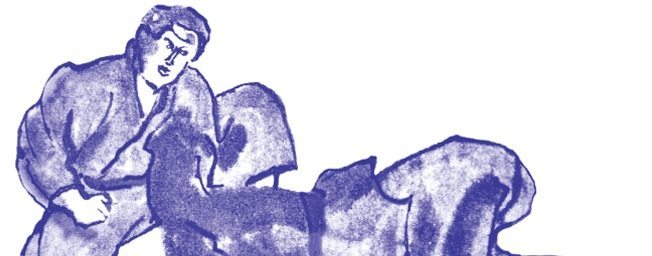
“Grieving for the Earth” from The Wild Edge of Sorrow
Categories: Ecology & Sustainability Excerpt Health & Healing Psychology & Personal Growth Spirituality & Religion
by Francis Weller, MFT
 In his upcoming book, The Wild Edge of Sorrow, author and therapist Francis Weller shows readers how, through the art of grieving and feeling authentically, we can become soul activists. His book covers many different kinds of grief: the grief we feel when a loved one passes, when a part of ourselves is lost, or the everyday grief we face living in the twenty-first century among economic, social and environmental upset. Below is an adapted excerpt from The Wild Edge of Sorrow on grieving for the world.
In his upcoming book, The Wild Edge of Sorrow, author and therapist Francis Weller shows readers how, through the art of grieving and feeling authentically, we can become soul activists. His book covers many different kinds of grief: the grief we feel when a loved one passes, when a part of ourselves is lost, or the everyday grief we face living in the twenty-first century among economic, social and environmental upset. Below is an adapted excerpt from The Wild Edge of Sorrow on grieving for the world.
Tags: Grief & Loss Self-Improvement & Inspiration Spiritual Psychology Francis WellerGrieving for the Earth
Whether or not we consciously recognize it, the daily diminishment of species, habitats, and cultures is noted in our psyches. Much of the grief we carry is not personal, but shared, communal. It is difficult to walk down the street and not feel the collective sorrows of homelessness or the economic insanity revealed in commercialism and consumerism. It takes everything we have to deny the sorrows of the world. At nearly every grief ritual people share their profound sadness for the earth. One woman shared her gratitude for finally having a place to acknowledge in community this grief. They feel what psychologist Chellis Glendinning calls Earthgrief. She writes, “To open our hearts to the sad history of humanity and the devastated state of the Earth is the next step in our reclamation of our bodies, the body of our human community, and the body of the Earth.”
This is where we most directly experience the soul of the world, the anima mundi. Here the alchemical observation that “the greater part of the soul lies outside the body” becomes evident. As Jung noted, we live in psyche; psyche does not live in us. We are enveloped in a field of consciousness; everything possesses soul. This was known to every indigenous culture. What we feel from the surrounding world is not a projection of our own minds outward into the environment. We can travel just about anywhere in the world and we will inevitably come across vestiges of clear-cuts, those bleeding and scarred lands that look so desolate and violated.
These places announce themselves as a wound, a rupture where life once moved and breathed. Our hearts sink into a deep grief in these times. Western psychology would most likely suggest that the grief we are feeling is related to our own experience of being diminished as a child, a metaphoric clear-cut, as it were. In that moment, we would be left alone with our feelings of grief, wondering about how to heal this wound.
What if, however, the feelings we have when we pass through these zones of destruction are actually arising from the land itself? What if it is the grief of the forest registering in our bodies and psyches—the sorrow of the redwoods, voles, sorrel, ferns, owls, and deer, all those who lost their homes and lives as a result of this plunder of living beings? What if we are not separate from the world at all? It is our spiritual responsibility to acknowledge these losses. What if this is the anima mundi, the soul of the world, weeping through us? We know and feel in our bones that something primal is amiss. Our extended home is being eroded, as is the experience of our wider self. It is essential that we stop and recognize these losses. It is good manners to respond with sorrow, outrage, and apology at these places touched by so much loss.
We cringe when we see polluted rivers and litter strewn along roadsides. We felt the sorrows of the Gulf of Mexico as it struggled with the outpouring of oil into its waters. Our souls are connected with the soul of the world, and it is through this bond that we acknowledge our interconnected lives.
The cumulative grief of the world is overwhelming. The litany of losses could fill a book. Our ways of living have become corrosive to the earth, to prairie dogs and grizzly bears, to bluefin tuna and monarch butterflies and cultures. Every day, we see the dead lying by the side of the road—deer, raccoons, skunks, opossums, and foxes. Shopping malls homogenize the landscape of our communities, turning them into a bland slurry. We are depleting, with an ever-growing tenacity, the complex, multilayered song of the world and replacing it with a single-pitched monotone, depositing empty calories, sterile seeds, and meaningless objects in every developing country while silencing forever the voices of hundreds of cultures.
How can we possibly stay open to the endless assaults on the biosphere when the urge to avert our eyes and pretend that we don’t feel this pain takes over? It takes a heart of courage and conviction, one willing to look into the center of the suffering and remain present.
To live a life of soul means living with sensitivity to the plight of the planet. I think of Rachel Carson, who launched the modern environmental movement with her work on DDT and other toxins; Lily Yeh rebuilding neighborhoods in the inner city of Philadelphia through programs that bring art and beauty to blighted areas; and Rigoberta Menchú protecting indigenous communities in Guatemala from corporate incursions. I think of Nnimmo Bassey fighting to protect the Niger delta from oil spills. Nearly every year, the people of Nigeria experience oil spills the size of the Exxon Valdez spill. There are thousands of men and women, whose names we will likely never know, who are defending their homelands from the assaults of greed.
Often, in my practice, I hear someone talk about feeling empty. But what if this emptiness is a hollowness that comes from a prolonged absence of birdsong, the scent of sweetgrass, the taste of wild huckleberries, the cry of the red-tailed hawk, or the melancholy call of the loon? What if this emptiness is the great echo in our soul of what it is we expected and did not receive? We are born, as psychiatrist R. D. Laing reminds us, “as Stone Age children.” Our entire psychic, physical, emotional, and spiritual makeup was shaped in the long evolutionary sweep of our species.
A beautiful and strange otherness was meant to be seen in one another’s eyes. We, too, are meant to embody a vivid and animated life, to live close to our wild souls, our wild bodies and minds. We were meant to dance and sing, play and laugh unselfconsciously, tell stories, make love, and take delight in this brief but privileged adventure of incarnation. The wild within and the wild without are kin, the one enlivening the other in a beautiful tango.
Excerpted from The Wild Edge of Sorrow by Francis Weller. © 2015, North Atlantic Books.



